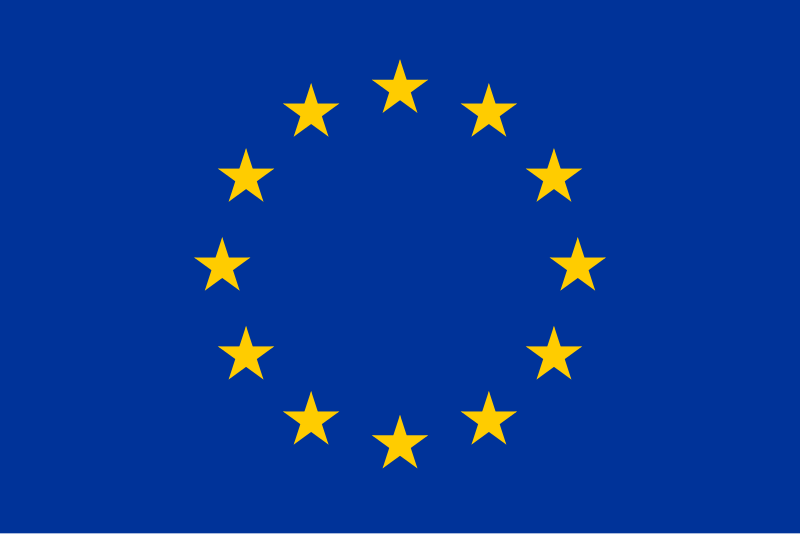Introduction
Russia remains an attractive destination for starting a business due to its large market, access to resources, and simplified company registration procedures. In 2025, both foreign and local investors can establish a business in Russia on equal terms by following clear legal requirements. RT Union, a Russian-Turkish Legal Company with 20 years of experience in supporting international businesses, has prepared this detailed guide to help you set up a company, branch, or representative office in Russia, considering the latest laws and procedures.
Types of Businesses in Russia
According to the Civil Code of the Russian Federation (Civil Code) and Federal Law No. 129-FZ "On State Registration of Legal Entities and Individual Entrepreneurs" (hereinafter – Law No. 129-FZ), you can start a business in Russia in several forms:
1. Individual Entrepreneur (IE)
2. Limited Liability Company (LLC)
3. Joint-Stock Company (JSC)
4. Branches and Representative Offices of Foreign Companies
Tip from RT Union: For most foreign investors, an LLC is the optimal choice due to its ease of registration and limited liability.
- Suitable for small businesses, such as freelancers or self-employed individuals.
- Maximum annual income for self-employed individuals in 2025 is 2.4 million rubles.
- Limitations: Limited ability to hire employees, and personal assets are liable for business debts.
2. Limited Liability Company (LLC)
- The most popular form for small and medium-sized businesses. Minimum charter capital is 10,000 rubles.
- Founders’ liability is limited to their share in the charter capital (Article 56 of the Civil Code).
- Suitable for joint ventures with foreign participation.
3. Joint-Stock Company (JSC)
- Suitable for large companies. Can be public (PJSC) or non-public (JSC).
- Minimum capital for a non-public JSC is 10,000 rubles, for a PJSC – 100,000 rubles.
4. Branches and Representative Offices of Foreign Companies
- Not independent legal entities.
- Branches can engage in commercial activities, while representative offices can only represent the interests of the parent company.
Tip from RT Union: For most foreign investors, an LLC is the optimal choice due to its ease of registration and limited liability.

Step-by-Step Process for Business Registration
For Russian Citizens and Foreign Residents
Step 1: Choose the Legal Form and Taxation System
Step 2: Prepare the Documents
Tip from RT Union: If you are a foreigner, documents must be translated into Russian and notarized. For citizens of EAEU countries (e.g., Kazakhstan, Belarus), a notarized translation is sufficient; for others, an apostille or consular legalization is required (Article 13 of Federal Law No. 115-FZ "On the Legal Status of Foreign Citizens in the Russian Federation").
Step 3: Submit Documents to the Tax Authority
Step 1: Choose the Legal Form and Taxation System
- Form: Decide whether to register as an IE, LLC, or JSC. An IE is suitable for small businesses without partners, while an LLC is ideal for joint ventures.
- Taxation System: Choose between the General Taxation System (OSNO), Simplified Taxation System (STS), Patent Taxation System (PTS), or Automated Simplified Taxation System (ASTS). For example, the STS is unavailable for LLCs with foreign ownership exceeding 25% (Article 346.12 of the Tax Code of the Russian Federation).
Step 2: Prepare the Documents
- For an IE:
- Passport.
- Application form R21001.
- Receipt of state duty payment (800 rubles).
- For an LLC:
- Company charter.
- Resolution on establishment (for a single founder) or minutes of the meeting (for multiple founders).
- Application form R11001.
- Lease agreement or a letter of guarantee for the legal address.
- Receipt of state duty payment (4,000 rubles).
- Minimum charter capital (10,000 rubles) must be contributed within 4 months after registration (Article 66.2 of the Civil Code).
Tip from RT Union: If you are a foreigner, documents must be translated into Russian and notarized. For citizens of EAEU countries (e.g., Kazakhstan, Belarus), a notarized translation is sufficient; for others, an apostille or consular legalization is required (Article 13 of Federal Law No. 115-FZ "On the Legal Status of Foreign Citizens in the Russian Federation").
Step 3: Submit Documents to the Tax Authority
- Documents can be submitted:
- In person at the Federal Tax Service (FTS).
- Through a Multifunctional Center (MFC).
- Online via the "Gosuslugi" portal using an electronic signature (EDS).
- Through a notary (for a fee).
- Processing time: 3 working days. In case of rejection (e.g., due to errors in documents), the state duty does not need to be paid again if corrected documents are submitted within 3 months.
- Upon successful registration, you will receive:
- A record sheet from the Unified State Register of Legal Entities (EGRUL) for LLCs or the Unified State Register of Individual Entrepreneurs (EGRIP) for IEs.
- A notice of tax registration.
- Next steps:
- Open a bank account.
- Register with the Social Insurance Fund of Russia (SFR) for employees.
- Obtain statistics codes from Rosstat.
For Foreigners Residing Abroad
Foreigners can register a business in Russia without being physically present if they have a verified "Gosuslugi" account and biometric data. Documents can be submitted online using an EDS or through a trusted representative with a notarized power of attorney. Citizens of EAEU countries (Armenia, Belarus, Kazakhstan, Kyrgyzstan) can restore access to "Gosuslugi" through consulates.
Tip from RT Union: We can act as your trusted representative to handle document submission and guide you through the process.
Foreigners can register a business in Russia without being physically present if they have a verified "Gosuslugi" account and biometric data. Documents can be submitted online using an EDS or through a trusted representative with a notarized power of attorney. Citizens of EAEU countries (Armenia, Belarus, Kazakhstan, Kyrgyzstan) can restore access to "Gosuslugi" through consulates.
Tip from RT Union: We can act as your trusted representative to handle document submission and guide you through the process.
Registration of a Branch or Representative Office

Branch
Representative Office
Tip from RT Union: Branches and representative offices are exempt from VAT on rent, but taxes are governed by double taxation avoidance agreements (e.g., between Russia and Türkiye).
- Features: Can engage in commercial activities but is not a separate legal entity.
- Documents:
- Resolution of the parent company to open a branch.
- Branch regulations.
- A copy of the parent company’s charter, apostilled or consular-certified.
- Application for accreditation.
- State duty – 4,000 rubles.
- Accreditation Period: 25–30 working days.
Representative Office
- Features: Cannot engage in commercial activities, only represents the company’s interests.
- Documents: Similar to those for a branch.
- Accreditation Period: 25–30 working days.
Tip from RT Union: Branches and representative offices are exempt from VAT on rent, but taxes are governed by double taxation avoidance agreements (e.g., between Russia and Türkiye).
Taxation in 2025
Key Tax Rates
Restrictions
Tip from RT Union: We can help you choose the optimal tax regime and minimize your tax burden.
- Personal Income Tax (PIT, for IEs and employees):
- 13% – for income up to 2.4 million rubles.
- 15% – for income from 2.4 million to 5 million rubles.
- 18% – for income from 5 million to 20 million rubles (Federal Law No. 176-FZ dated 12.07.2024).
- Corporate Income Tax (for LLCs on OSNO): 25% (as of 2025).
- Simplified Taxation System (STS, for IEs and LLCs with income up to 60 million rubles): Exempt from VAT. For higher income, VAT is 5% or 7%.
- Dividends for LLCs with Foreign Ownership: 15% (compared to 13% for Russian founders).
Restrictions
- LLCs with foreign ownership exceeding 25% cannot use the STS (Article 346.12 of the Tax Code).
- Companies with foreign capital over 49% are ineligible for small business benefits.
Tip from RT Union: We can help you choose the optimal tax regime and minimize your tax burden.

Restrictions for Foreigners
- Prohibited Activities: Certain sectors (e.g., banking, insurance) require special permits from the Central Bank of Russia.
- Requirements for Directors: A foreign director must have a work permit or residence permit (Federal Law No. 115-FZ). However, registration is possible without these documents if the director is appointed later.
- Visa for EAEU Citizens: Citizens of EAEU countries (Armenia, Belarus, Kazakhstan, Kyrgyzstan) do not require a visa, but the tax authority may challenge registration without one.
Conclusion
Starting a business in Russia in 2025 is an accessible process for both foreign and local investors, provided you comply with legal requirements. You can choose to register as an IE, LLC, branch, or representative office depending on your goals. However, proper document preparation, tax regime selection, and adherence to migration regulations are key to successful registration.
RT Union, a Russian-Turkish Legal Company, is ready to assist you at every step—from document preparation to registration and selecting the optimal tax regime. Contact us for a consultation and launch your business in Russia seamlessly!
RT Union, a Russian-Turkish Legal Company, is ready to assist you at every step—from document preparation to registration and selecting the optimal tax regime. Contact us for a consultation and launch your business in Russia seamlessly!
Sources
- Federal Law No. 129-FZ "On State Registration of Legal Entities and Individual Entrepreneurs"
- Civil Code of the Russian Federation
- Tax Code of the Russian Federation
- Federal Law No. 115-FZ "On the Legal Status of Foreign Citizens in the Russian Federation"
- Federal Law No. 176-FZ dated 12.07.2024 on Tax Amendments
- Gosuslugi: Business Registration Services
- Gosuslugi: Business Registration Services
- Social Insurance Fund of Russia: Registration Requirements
- Rosstat: Obtaining Statistics Codes
























